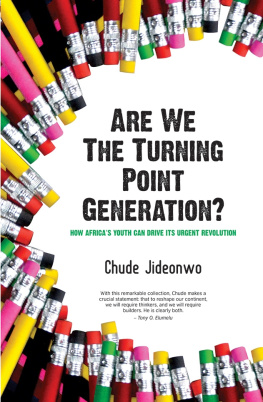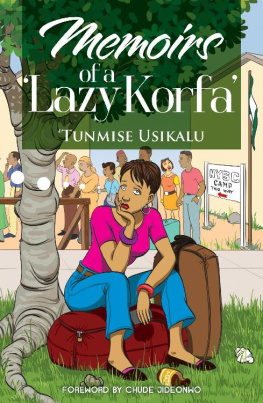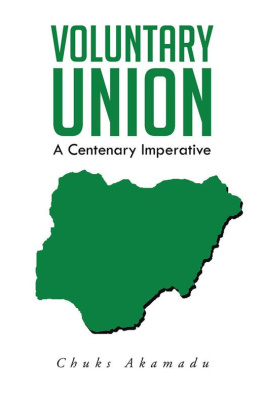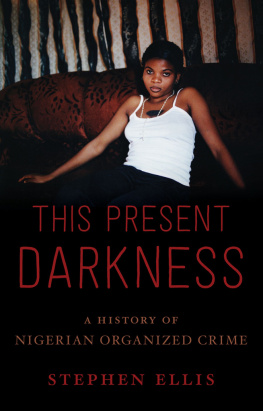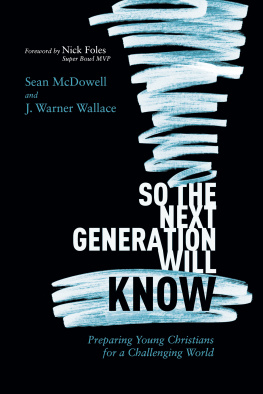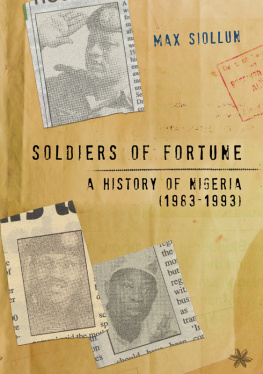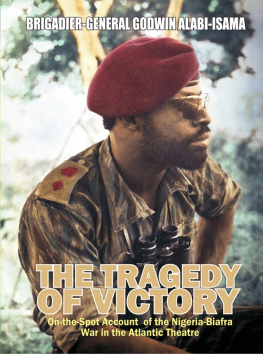
ARE WE THE TURNING POINT
GENERATION?
HOW AFRICAS YOUTH CAN DRIVE ITS URGENT REVOLUTION
essays by
Chude Jideonwo
Farafina Kamsi LAGOS
Published in Nigeria in 2014 by Kachifo Limited
Under its Kamsi imprint
253 Herbert Macaulay Way
Yaba, Lagos, Nigeria
0807 736 4217
info@kachifo.com
www.kachifo.com
Copyright Chude Jideonwo 2014
The right of Chude Jideonwo to be identified as the author
of this work has been asserted by him in accordance
with the copyright laws.
A catalogue record for this book is available from
the National Library of Nigeria.
ISBN: 978-978-52058-7-9
All rights reserved.
No part of this publication may be reproduced, transmitted,
or stored in a retrieval system, in any form or by any means,
without permission in writing from the copyright holder.
Layout: Akeem Ibrahim
Authors photograph: TY Bello
Cover design: Victor Ehikhamenor
Cover photography: Victor Ehikhamenor
This is for my mother
inspirer, cheerleader, leader
.
FOREWORD
I might be an entrepreneur these days with the day job of managing the media companies under the RED group, and the team of people that keep us special, but I never forget that I am first and foremost, a storyteller.
Its what I have always wanted to befirst when I thought fiction, and then when I discovered my impatience was better suited to the notepads of a journalist. A storyteller in the now, in the present; in the center of the story as it unfolds, shaping, directing, pulling, pushing.
I have also been lucky to stand at a vantage position as my generation has evolved, and as my peers and myself come into our ownas a business person managing people and resources in a time of great flux, as a media owner not uninterested in driving the conversation, and combining that profession with the difficult passion of making change in a country and continent like ours.
As I have navigated those waters, I have always felt that I bore a responsibility to myself to share my thoughts and lend my voice to the issues that matter to mewith clarity, with honesty, and with deliberate disregard to the fears that gnaw at my heart time and again.
Its sometimes the fear of going against the grain, the fear of taking a tack against the popular stand, or what I call in one of the pieces, the courage to be reasonable. But at the end of the day, all I have is my voice, and its independence, and I have chosen to guide it with all that I have, and am.
And, over the years, I have shared my thoughts as they have comeas a columnist at NEXT, on the pulpit of The Future Awards Africa, on our internet newspaper, YNaija.com, at important public events with the president or with corporate, political and civil society leaders, across the country and outside. There was no anticipation they would all tie in one day into this collectionthat reflects thoughts I hold dear, my vision of modern society across the intersections that interest me.
In 2013, after the whirlwind of the rallies that brought the new president into power, the excitement of new elections and getting out the youth vote, as well as the euphoria of people power occasioned by the fuel subsidy protests of the year before, and as I considered the future of our country, and our continent, I embarked on the popular essay series New Leadership on the nations leading online platforms. They were, for me, a statement of my visionwhat I think is possible, what I think we must do.
I thank my friends, Gbenga Sesan, Adaobi Nwaubani, Aziza Uko, Mfon Ekpo, Adebola Williams and others who insisted, after the series, that this was a book that had to be done; put together; a story that has to be told.
This book is as a result of my agreeing with them. Expanded beyond the essays, and spread over a timeline of at least seven years, they constitute my personal narrative of what it means to be young and to be African in these exciting times. It is a time of great disappointment in the present and in the state of our nations, and yet one of great hope and opportunity for what we can do, and for what is possible.
And yes, they were right. And I am glad I took off the cap of business and committed to getting this done. Our collective narrative needs be definedand if not now, then when?
Chude Jideonwo
February 2014
Contents
Why do many Nigerian leaders change once in office? Will the present generation of Nigerians do any better than its predecessors? Was Occupy Nigeria indeed a failure? Do we need a Nigerian Dream? Is One Nigeria really worth it? These and many other difficult questions are raised in this thought-provoking collection of essays on the paradox that is Nigeria.
Written with the keenness of youth but earnest and wise beyond its years, Are We the Turning Point Generation? will resonate with young Nigerians while remaining relatable to previous generations. This book embodies the voice of a new breed of Nigerians willing to take a stand and do things differently. Are We the Turning Point Gen eration? promises to inspire a new way of thinking, posing a challenge to Nigerians, young and old, to pick a spot, and start digging!
PART ONE
LOSING IT:
HOW NOT TO RUN
A NATION
{1}
THERES SOMETHING ABOUT GOVERNMENT
F EBRUARY 6, 2013
M Y ORIENTATION ABOUT OUR GOVERNMENT BEGAN TO CHANGE IN 2009. My orientation about our government began to change in 2009. Before then, I had always feltsadly without any historical or evidentiary perspectivethat Nigerians can transform Nigeria in spite of our government.
It was easy for me to believe this. I came into awareness of my countrys place in the world in an atmosphere of hope in the late 1990s, and at the turn of the millennium as we embraced democracy and the opening of many social spaces. There were very many examples to point out. Some are now clichd like; Nollywood, an industry that has been hailed for rising up like a rose amongst thorns, and had become Nigerias biggest cultural export to the world. Or our music industry which is also thriving simply by grit and talent. Or our youth who, from art to advocacy, technology to the media, had charted courses that didnt depend on government patronage or support. Surely, if Nigerians could do these, in spite of Nigeria, then we could end up regenerating Nigeria through a network of people empowered economically and by knowledge, working to rebuild our country step by step.
Thats what I thought.
Thats what drove our passion and our work with The Future Awards, and its evolution into The Future Project. Thats what drove our focus on identifying the most inspiring of our generation as strong, positive role models to motivate others to transcend Nigerias difficult environment and do great things. The idea was, and is still, the fulcrum of our work; that this network of inspired, effective new leaders would create a flywheel effect that will change Nigeria.
A chance comment from a friend got me thinking beyond the box, however. He asked: how far will we actually be able to go in transforming our society before we have to connect those efforts with what government is doing or what it needs to do? How much could we achieve if the government fundamentally remained the same?
The more I thought about it, the more I realised the answernot far.
My experiences over the past few years have made apparent to me what has been obvious to the worlds real change-makers in modern societies over the past few years. Its the same reality that confronts you when you read books like Lee Kuan Yews From Third World to First , and Start-Up Nation : The Story of Israels Economic Miracles we can only go so far in changing our world without connecting with or transforming government.
Next page
